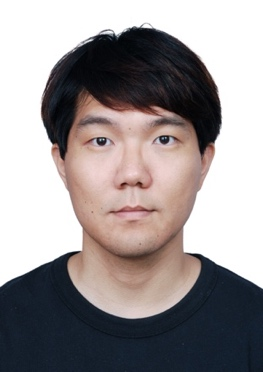
楊國春
博士,研究員,研究組組長
Email:yangguochun@@gdiist.cn
個人簡介:
楊國春,研究員,認知神經表征與調控研究組組長。2012年于武漢大學獲得醫學學士學位(醫學檢驗專業)。2018年于中國科學院大學獲得理學博士學位(認知神經科學專業)。2018年7月至2025年2月,先后在中國科學院心理研究所和美國愛荷華大學心理與腦科學系從事博士后研究。其研究成果發表于PLOS Biology, eLife, Journal of Neuroscience, Neuroscience & Biobehavioral Review等期刊。
認知神經表征與調控研究組(Laboratory of Cognitive Neural Representation and Regulation):
復雜的高級認知功能(如執行控制、注意、記憶等)是人類區別于其他生物的核心特征。例如,人類可以借助豐富的想象和嚴密的邏輯思維,對未來進行復雜的計劃,這是其他生物難以企及的。理解高級認知功能的機制,不僅有助于揭示人類智慧的奧秘,也將為類腦人工智能的發展提供重要啟示。
本研究組綜合運用認知行為范式、腦電(EEG)、功能磁共振(fMRI)和計算建模等技術,深入探索高級認知功能的神經表征機制及認知策略調控機制。
主要研究方向和研究問題:
(1)高級認知功能的表征機制:高級認知功能(如認知控制)在不同情境下具有不同的狀態。這些狀態如何在大腦中被記憶和表征?這些表征又如何指導行為?
(2)認知策略的調控機制:人類對外界信息的加工不是被動的,而是會基于目標要求和主觀意圖進行主動調控,從而強化重要信息、抑制無關干擾信息。這一調控過程如何實現?其背后遵循哪些原則?
(3)行為/神經表征的類腦計算模型:根據外界輸入,大腦產生特定的活動,最終決定了行為表現。三者之間有怎樣的映射關系?能否通過計算模型實現統一描述?
(4)執行功能的發展變化與相關疾病:執行功能是實現目標導向行為的基礎,但是在特定人群中會表現出不成熟、退化或受損。執行功能對應的腦機制在畢生發展過程中會發生怎樣的變化?如何設計有效的研究范式來測量疾病人群中的執行功能異常?
本課題組長期招收聯合培養博士生(澳門大學、北師大珠海等高校)、博士后和實習生。歡迎感興趣的同學郵件聯系yangguochun@gdiist.cn。
代表論著(#共同一作,*通訊作者):
1. Yang G.*, Jiang J. * (2024). Cost-benefit tradeoff mediates the transition from rule-based to memory-based processing during practice. Accepted, PLOS Biology, 23(1), e3002987. https://doi.org/10.1371/journal.pbio.3002987
2. Yang, G., Wu, H., Li, Q., Liu, X., Fu, Z., & Jiang, J. (2024). Dorsolateral prefrontal activity supports a cognitive space organization of cognitive control. eLife, 12:RP87126. https://doi.org/10.7554/eLife.87126
3. Yang, G.#, Wang, K.#, Nan, W., Li, Q., Zheng, Y., Wu, H., & Liu, X. (2022). Distinct brain mechanisms for conflict adaptation within and across conflict types. Journal of Cognitive Neuroscience, 34(3), 445-460. https://doi.org/10.1162/jocn_a_01806
4. Yang, G.#, Xu, H.#, Li, Z., Nan, W., Wu, H., Li, Q., & Liu, X. (2021). The congruency sequence effect is modulated by the similarity of conflicts. Journal of Experimental Psychology: Learning, Memory and Cognition, 47(10), 1705-1719. https://doi.org/10.1037/xlm0001054
5. Yang, G., Wu, H., Qi, Y., & Liu, X. (2021). Cognitive and neural mechanisms of human gender processing. Advances in Psychological Science [Chinese], 29(1),1-10. https://doi.org/10.3724/SP.J.1042.2020.02008
6. Li, Z., Goschl, F., & Yang, G.* (2020). Dissociated neural mechanisms of target and distractor processing facilitated by expectations. Journal of Neuroscience, 40(10), 1997-1999. https://doi.org/10.1523/JNEUROSCI.2562-19.2020
7. Yang, G., Li, Z., Wu, H., & Liu, X. (2019). Generality and specificity of cognitive control: research logics and debates. Acta Physiologica Sinica [Chinese], 71(1), 140–148. https://doi.org/10.13294/j.aps.2018.0096
8. Li, Q.#, Yang, G. #, Li, Z., Qi, Y., Cole, M. W., & Liu, X. (2017). Conflict detection and resolution rely on a combination of common and distinct cognitive control networks. Neuroscience and Biobehavioral Reviews, 83, 123-131. https://doi.org/10.1016/j.neubiorev.2017.09.032
9. Yang, G., Nan, W., Zheng, Y., Wu, H., Li, Q., & Liu, X. (2017). Distinct cognitive control mechanisms as revealed by modality-specific conflict adaptation effects. Journal of Experimental Psychology: Human Perception and Performance, 43(4), 807-818. https://doi.org/10.1037/xhp0000351




